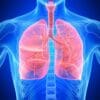Common Triggers for Asthma Attacks: Understanding and Managing Your Symptoms
Asthma, a chronic respiratory condition, affects millions of people in India, leading to recurring episodes of breathlessness, wheezing, chest tightness, and coughing. Understanding the common triggers for asthma attacks is crucial for effectively managing this condition and minimizing the risk of exacerbations. By identifying and addressing these triggers, individuals with asthma can take proactive steps to reduce the frequency and severity of their symptoms, ultimately leading to a better quality of life.
Understanding Asthma Triggers
Allergens
Allergens play a significant role in triggering asthma attacks. Common allergens include pollen, dust mites, mold, pet dander, and cockroach droppings. When individuals with asthma are exposed to these allergens, their airways can become inflamed, leading to symptoms such as coughing and difficulty breathing.
Respiratory Infections
Respiratory infections, particularly viral infections like the common cold and flu, can exacerbate asthma symptoms. Infections can cause inflammation in the airways, making it harder for individuals with asthma to breathe and increasing the likelihood of an asthma attack.
Air Pollution
Poor air quality, often exacerbated by industrial emissions, vehicular exhaust, and indoor pollutants, can trigger asthma symptoms. Particulate matter, nitrogen dioxide, sulfur dioxide, and ozone are common air pollutants that can worsen respiratory conditions, making it essential for individuals with asthma to monitor air quality and take precautions when pollution levels are high.
Tobacco Smoke
Exposure to secondhand smoke or direct smoking can significantly impact asthma control. The chemicals in tobacco smoke can irritate the airways, leading to inflammation and increased mucus production, thereby triggering asthma symptoms.
Exercise and Physical Activity
While physical activity is essential for overall health, certain types of exercise can trigger asthma symptoms in some individuals. This phenomenon, known as exercise-induced bronchoconstriction, can cause coughing, wheezing, and shortness of breath during or after physical exertion.
Weather Changes
Weather fluctuations, particularly cold air, humidity, and sudden temperature changes, can act as triggers for asthma attacks. Cold, dry air can irritate the airways, leading to bronchoconstriction and increased mucus production, while high humidity can contribute to the growth of mold and dust mites, exacerbating asthma symptoms.
Strong Odors and Irritants
Strong odors from perfumes, cleaning products, paints, and chemicals can act as irritants, exacerbating asthma symptoms in sensitive individuals. Additionally, exposure to fumes from cooking, especially in poorly ventilated areas, can trigger asthma attacks.
Managing Asthma Triggers
Environmental Control
Taking steps to minimize exposure to allergens, such as using allergen-proof pillow and mattress covers, regularly cleaning and vacuuming the living space, and reducing indoor humidity, can help mitigate asthma triggers related to allergens and mold.
Vaccinations
Receiving annual flu vaccines and staying up to date with other relevant vaccinations can reduce the risk of respiratory infections, thereby lowering the likelihood of asthma exacerbations caused by viral illnesses.
Air Quality Monitoring
Keeping track of air quality reports and avoiding outdoor activities during high pollution days can help individuals with asthma minimize exposure to air pollutants, reducing the risk of asthma attacks.
Smoking Cessation
For individuals with asthma who smoke, quitting is crucial for managing symptoms and preventing asthma attacks. Additionally, avoiding exposure to secondhand smoke is essential for those living with smokers.
Physical Activity Planning
Engaging in physical activity is important for overall health, and individuals with asthma can benefit from working with healthcare professionals to develop an exercise plan that minimizes the risk of exercise-induced bronchoconstriction.
Weather Awareness
Monitoring weather forecasts and taking precautions, such as wearing a scarf over the mouth and nose in cold weather or using air conditioning to reduce humidity indoors, can help individuals with asthma manage the impact of weather-related triggers.
Odor and Irritant Avoidance
Minimizing exposure to strong odors and irritants by using unscented or hypoallergenic products, ensuring proper ventilation during cooking, and avoiding areas with heavy chemical fumes can help reduce the risk of asthma attacks.
Introducing Fitpaa: Empowering Asthma Management
In addition to proactive environmental control and lifestyle adjustments, individuals with asthma can benefit from personalized support and guidance to effectively manage their condition. Fitpaa, an innovative health and fitness app, offers comprehensive solutions to support individuals in achieving their health and fitness goals, including managing asthma triggers and symptoms.
Personalized Fitpaa Capsule
Fitpaa provides personalized health and fitness plans, known as Fitpaa Capsules, tailored to individual metabolism, health goals, lifestyle, and dietary habits. For individuals with asthma, the Fitpaa Capsule can include specialized guidance for managing triggers and maintaining optimal respiratory health.
Real-time Guidance and Support
Through the Fitpaa app, individuals with asthma can access real-time guidance and support, including habit-building strategies, timely reminders for medication and environmental control, and motivational tools to stay on track with their asthma management plan.
Comprehensive Health Monitoring
Fitpaa’s AI-driven technology allows for comprehensive health monitoring, including metabolism assessment, real-time tracking of asthma symptoms, and personalized feedback to optimize asthma management strategies.
Holistic Approach to Wellness
Fitpaa’s approach to health and fitness encompasses the strength and resilience of all 11 organ systems, providing individuals with asthma the tools and support they need to achieve overall well-being and optimal respiratory health.
Lifetime Validity and Goal-Oriented Services
With Fitpaa, individuals have access to goal-oriented services with lifetime validity, ensuring ongoing support and guidance for managing asthma triggers and achieving long-term respiratory wellness.
In conclusion, by understanding and addressing common triggers for asthma attacks and leveraging innovative solutions such as Fitpaa, individuals with asthma in India can take proactive steps to effectively manage their condition and improve their quality of life. With personalized support, comprehensive health monitoring, and a holistic approach to wellness, individuals can empower themselves to live well with asthma and achieve their health and fitness goals.
Remember, managing asthma is a journey, and with the right tools and support, individuals can thrive and lead fulfilling lives despite their respiratory challenges. Download the Fitpaa app today and take the first step toward optimal respiratory health and overall well-being.











